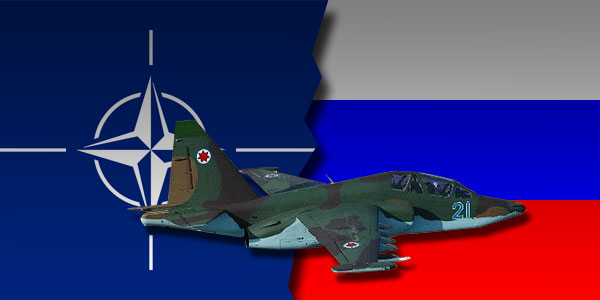
Should NATO invite Russia to join? The idea isn’t as crazy as it sounds.
Four very prominent German security leaders, Volker Rühe, Klaus Naumann, Frank Elbe and Ulrich Weisser have an open letter in today’s Spiegel proclaiming, "It’s Time to Invite Russia to Join NATO." The crux of their argument:
Europe’s security, though, remains a constant task, and new challenges require different responses than in the past. The Euro-Atlantic region needs peace and stability at home, but it also needs protection against external threats. Ultimately, the emergence of a multi-polar world requires finding a way to offset the political, economic and strategic dynamics of the large Asian powers.
NATO, in its current form, is not up to these tasks. In the future, the alliance should see itself as a strategic framework for the three centers of power: North America, Europe and Russia. This trio has common interests that are threatened by the same challenges, and which require the same responses. If the alliance intends to be the primary forum for addressing all crises — because it is the only forum where North America, Europe and Russia sit at the same table — then it must now establish the requisite institutional framework for that to happen. The door to NATO membership should be opened for Russia. Russia, in turn, must be prepared to accept the rights and obligations of a NATO member, of an equal among equals.
There was talk of expanding the Alliance to include Russia during the euphoria of the 1990s, before the promise of Boris Yeltsin evolved into the reality of Boris Yeltsin and then the retrenchment of Vladimir Putin. Indeed, Russia was a charter member of the Partnership for Peace, ten of whose members have since gone on to get a seat at the grown-up table.
Russia has decided, for understandable if ultimately silly reasons, that NATO is its enemy. Their invasion of Georgia — a country that had only months earlier been assured that its ultimate accession into NATO was inevitable — in August 2008 only solidified that fact.
But the notion has bubbled up again in recent months.
This past August, Philip Gordon, the assistant secretary of state for European and Eurasian affairs, stated that, "if Russia meets the criteria and can contribute to common security, and there is a consensus in the alliance, it shouldn’t be excluded." Just last month, Gordon’s boss, Secretary of State Hillary Clinton, joked, "Well, I can imagine it — but I don’t know if Russia can."
Apparently, at least some Russians can.
As my colleague Damon Wilson, vice president and director of the Atlantic Council’s International Security Program, alerted me this morning, Igor Jurgens of the Institute of Contemporary Development — often dubbed "Dmitry Medvedev’s think tank" because of his close association with them — released a report last month "recommending a radical overhaul of Russia’s political system, including a return to gubernatorial elections, the disbanding of the Federal Security Service and the Interior Ministry, and Russia’s accession to NATO and the European Union."
Ultimately, the idea isn’t ridiculous. Indeed, it’s debatable whether the Alliance can expand further east without including Russia. But actually getting there is a tall order, indeed.
Aside from overcoming the cultural hurdles necessary for Russia to swallow its pride and not only join an American-led organization that was formed to deter its aggression — not to mention the resistance of NATO members that spent decades under Moscow’s boot heel — one wonders what the Membership Action Plan would like like. Certainly, to be a viable candidate for NATO, Russia would have to undergo major political changes.
For the United States and Western Europe, at least, allowing Russia to join after jumping through the proper hoops is a no-brainer. But it’s hard to see the Russians wanting the prize badly enough.
James Joyner is managing editor of the Atlantic Council.
Image: russia_nato_0.jpg
